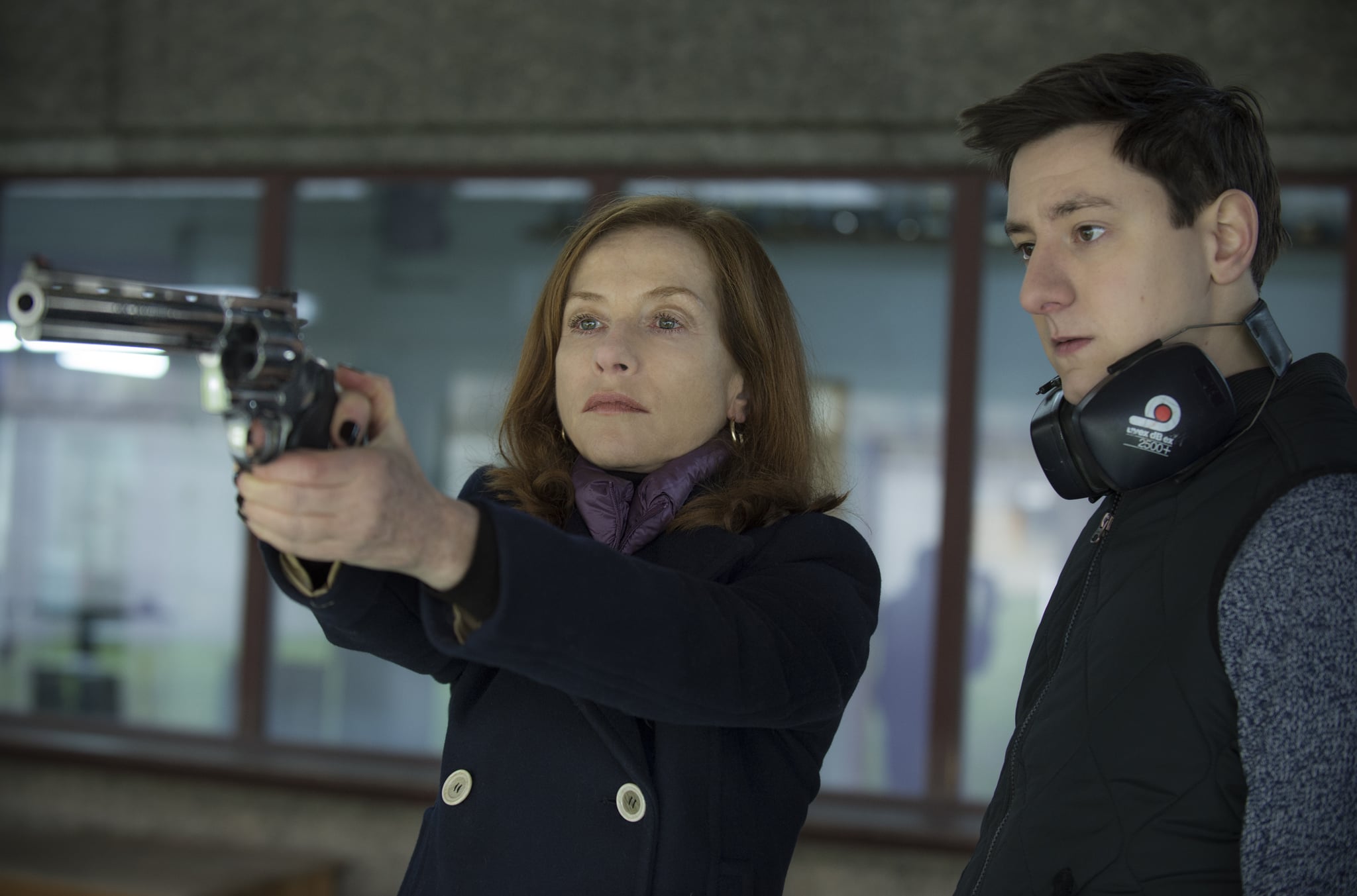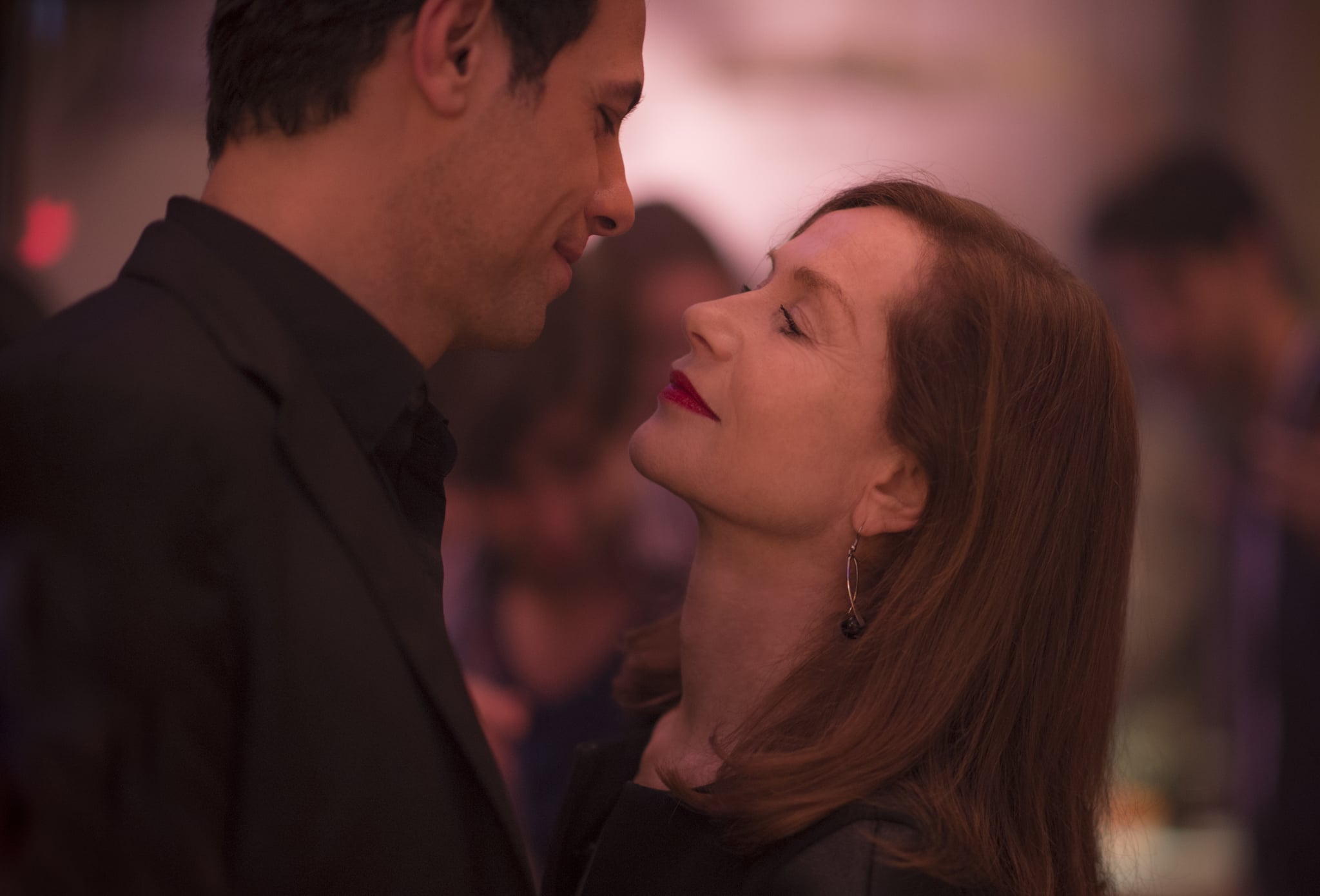
Warning: mild spoilers follow.
The film Elle has no interest in making its viewers comfortable. Instead, the movie opens on a rape scene that is loud, startling, and brutal. Seeing sexual assault on screen is not out of the ordinary in film; what is out of the ordinary about Elle is almost everything happens in the aftermath of the attack. The French movie, helmed by Dutch director Paul Verhoeven (yes, he also did Showgirls), had until last month flown relatively under the radar in the United States. Certainly, most people watching the Golden Globes in their living rooms were taken by surprise when star Isabelle Huppert won best actress in a drama [1] at the award ceremony — and many were again surprised when she scored an Oscar nomination on Jan. 24. Now, as the movie garners more and more attention, it's sparking a complicated conversation about rape culture, our ideas about victims and survivors, and gender roles. Here's why:
It Offers a Unique, Subversive Take on Gender and Rape Culture
After the rape that opens the film, Michèle (Huppert) throws her dress in the garbage, tidies the shattered china from her living room floor, takes a bath, and orders takeout sushi. She does not call the police. A few days later, while out to dinner with her ex-husband, her best friend Ann, and Ann's husband, she divulges the rape in an emotionless, matter-of-fact way that leaves her loved ones — and certainly most viewers — dumbfounded. The dispassionate announcement is presented as completely strange and even darkly funny.
We also learn that Michèle is not only a victim of rape, but plays an interesting role in propagating rape culture herself. She and her best friend, Ann, own a very successful video game company that thrives on narratives with hyperviolence and sexual fantasy at their centers. Shortly after her own rape, she's reviewing a current cut of a new game with her staff of mostly 20- and 30-something gamer guys, and demands they make a female character's reaction to an assault by an oversize, tentacled monster more "orgasmic." Moments later, in the same meeting, she is challenged and belittled by one of her own employees in a moment that pretty much any woman will recognize as a classic example of workplace sexism. These moments of dissonance continue through the film. Michèle incites our empathy in her vulnerable moments, but she can also be cruel, demanding, and selfish. She is not simple or "likable"; she's human.

It Features a Bold, Mindbendingly Great Performance by Isabelle Huppert
These complexities open the door for a tour de force performance by the 63-year-old Huppert, who has never shied away from controversial material in her career. She is perhaps best known in the states for her role as the masochistic lead character in The Piano Teacher. In 2012, she costarred in Amour, an Oscar-winning, controversial film about an elderly couple and assisted suicide (or murder, depending on your opinion). As Michèle, even the fleeting nuances of Huppert's facial expressions are entrancing, and she embodies Michèle's steely, cool nature as though she were reborn in the character's own skin.
The Ending Is Shocking — and Deeply Ambiguous
I don't want to reveal too much, because I do think this film is worth watching. But the last third of Elle — and, especially, the very end of it — calls almost everything you thought you understood about the movie's take on abuse, rape, and power into question . . . as well as some of what you thought you knew about the plot.
I'm not sure if I can agree with the conclusions it draws, primarily because I'm still not precisely sure what they are. What I do know? The film ends on a moment in which Michèle, as a literal survivor, wields all the power over the men in the room. Still, I can see how some viewers might read the film as a mockery of women, or an anti-feminist backlash to the mens rights-y idea of "victim culture." But my strong hunch is that Michèle's story is intended as a critique of our own complicity in rape culture and a cautionary tale about ignoring a woman's power; whether viewers are comfortable with its means to that end is the question. Days later, and I'm not sure that I am — but the fact that I'm still thinking about it proves, for me, Elle's success as a work of art.
